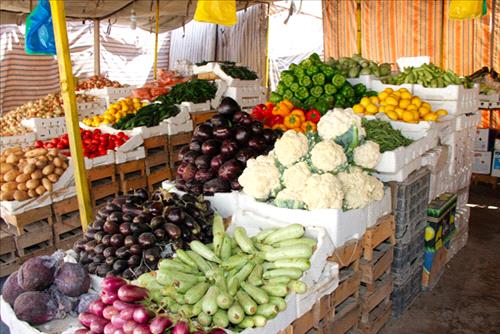Ammon News - by Hana Namrouqa/ Jordan Times
AMMAN — The Ministry of Agriculture’s plan to reduce or ban exports of vegetables was halted on Saturday, after prices in the local market dropped, according to a government official.
The ministry had planned to ban exports to control the prices of agricultural produce in the local market, due to a shortage in supply, Agriculture Ministry Spokesperson Nimer Haddadin said on Saturday.
“The decision was suspended because farmers from Mafraq in northeast Jordan, Zizya in south Amman and other desert areas harvested their crops and started supplying the market with vegetables,” Haddadin told The Jordan Times.
Prices of certain vegetables, particularly tomatoes, increase during this time of year, because of the gap between the harvest season in the Jordan Valley and that in the desert and Mafraq, according to Haddadin.
“Tomato prices have dropped noticeably today [Saturday] because some 600 tonnes of the produce arrived in the central market, causing prices per kilo to go down from JD0.80-JD1 to JD0.25,” Haddadin said, noting that local demand for tomatoes is 500 tonnes per day.
Over the past month, consumers have complained about the rising prices of vegetables, and tomatoes in particular, because local cuisine relies heavily on it, he added.
Ayman Suleiman, a spiceshop owner in downtown Amman, said prices of tomatoes dropped tangibly on Saturday.
“Today, I bought almost eight kilos of tomatoes for JD1, while three days ago, I bought one kilo for JD0.70, which is not logical,” Suleiman told The Jordan Times.
Jordan exports vegetables to Gulf countries, Iraq and Europe.
Last year, over 800,000 tonnes of fruits and vegetables were exported to 43 countries.
In the first quarter of 2013, exports of fruits and vegetables reached around JD145 million, according to the ministry’s figures, which also indicated that the Kingdom exported 270,000 tonnes of fruits and vegetables to over 40 Arab and foreign countries during the January-March period.
Tomatoes topped the list of overall exports, representing around 60 per cent, followed by cucumbers and eggplants.
